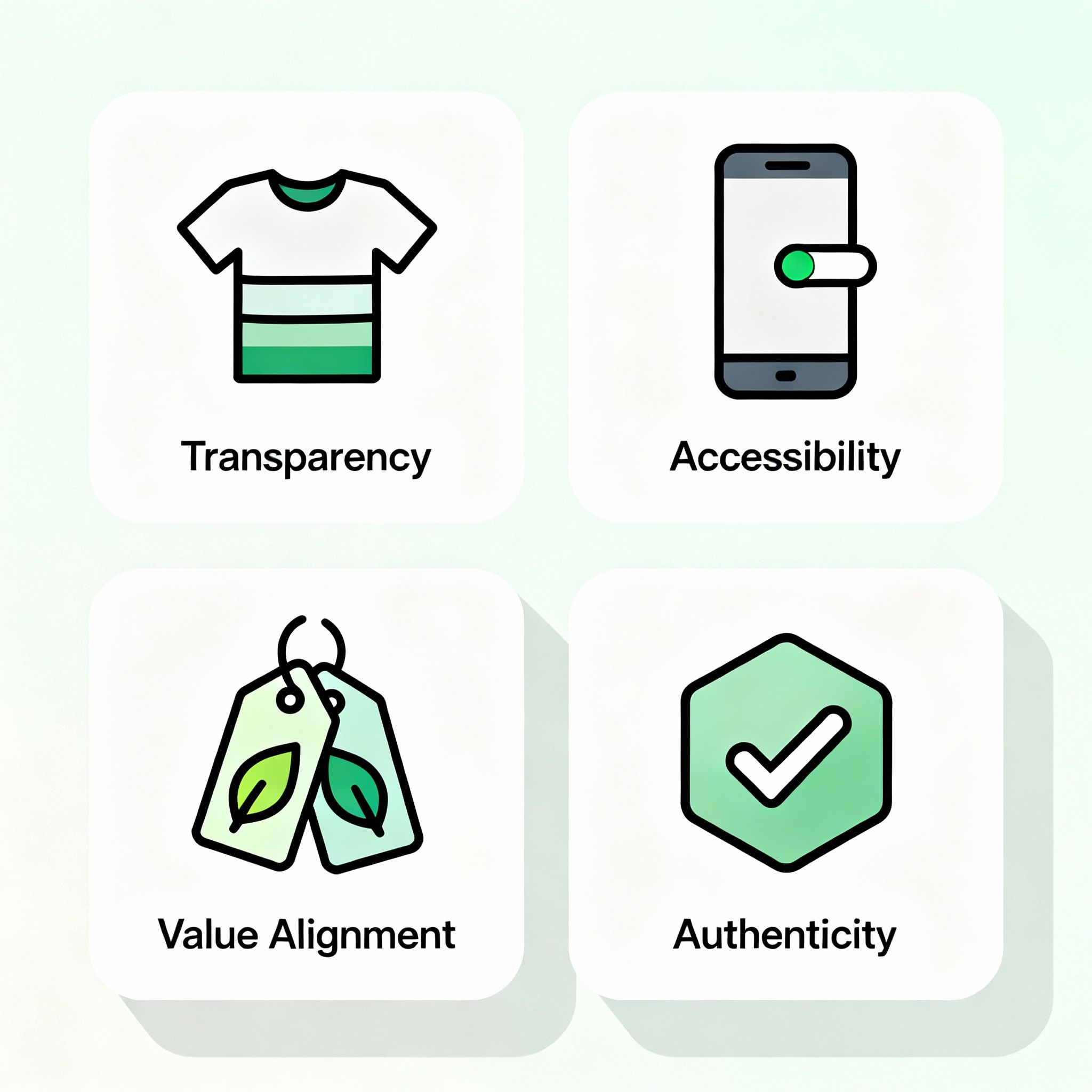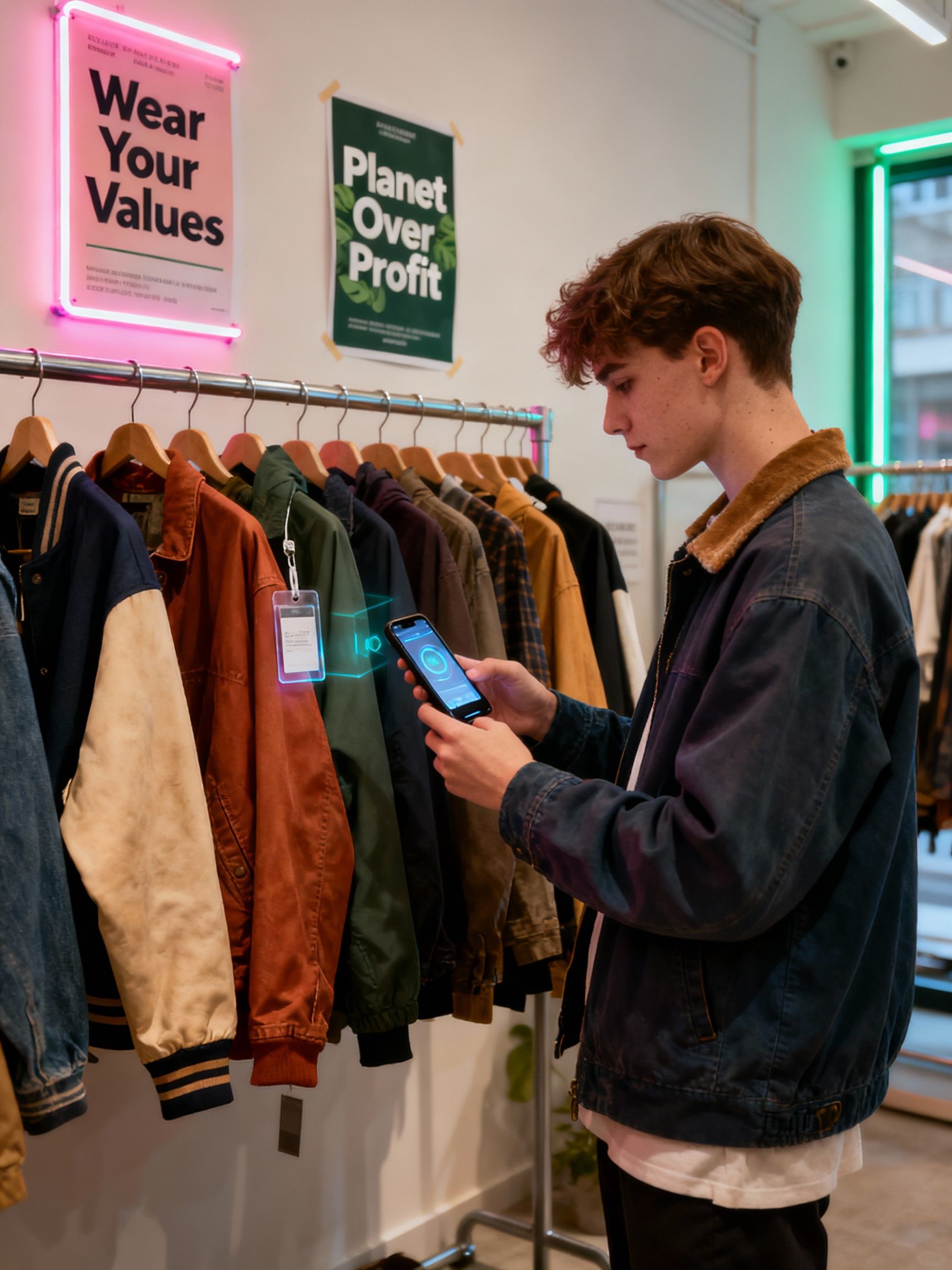Gen Z Sustainable Fashion: Style and Ethics United
TL;DR
Gen Z sustainable fashion is not just a trend it’s a values-driven lifestyle. They want eco-conscious design and ethical online shopping. Fashion apps, including Glance, can unlock that by blending personalization with purpose.
When Eco Means Identity
Gen Z is rewriting the rules of fashion. For them, sustainable style isn’t just an accessory, it's a reflection of their ethics, identity, and future. They don’t want to choose between looking good and doing good. They demand both.
That dual demand is gen z sustainable fashion, and it’s reshaping how fashion apps work. Algorithms must now serve not only trends but transparency. But there’s tension: while apps can recommend eco-friendly pieces, not all can truly deliver ethical online shopping in a way that aligns with Gen Z’s moral compass and financial reality.
The Real ‘Green’ Driver Behind Gen Z’s Fashion Choices
Gen Z is unusually conscious about the environmental and social footprint of fashion. In a U.S.-based survey, more than 88% of surveyed Gen Zers say they don’t trust eco-friendly brand claims, citing concerns about greenwashing.
Additionally, research shows many consumers are changing their behavior: 57% report making significant lifestyle changes to reduce their environmental impact, including choosing more sustainable fashion.
On second-hand platforms like Depop, Gen Z is particularly vocal: a study by Bain and Depop found that 75% of Gen Z users buy secondhand to reduce consumption, and 60% cited environmental footprint as a factor.
This isn’t performative for many, gen z sustainable fashion is a lived commitment, not just a marketing line.
What Ethical Online Shopping Really Means for Gen Z

“Ethical online shopping” for Gen Z is not about single purchases. It’s about:
- Transparency: Clear info on where materials come from, how garments are made, and how sustainable they truly are.
- Accessibility: Finding sustainable fashion via mobile apps that make eco-conscious brands discoverable.
- Value alignment: Paying a reasonable price for sustainable goods, or buying secondhand when it makes more sense.
- Authenticity: Not just “green” labels, but real, measured environmental and social commitments and Gen Z calls out the fakers.
In short, Gen Z wants online shopping to be seamless, transactional, and deeply aligned with their values.
Where Apps and Algorithms Fall Short — and Where Glance Can Help
Many fashion apps are still catching up to the depth of Gen Z’s demand. Here’s where AI + app design misses, and how Glance has a shot at doing it better:
- Eco-filter fatigue: Some apps offer “sustainable” filters — but if those filters pull from vague or unverified claim-based lists, they don’t really solve the greenwashing problem.
- Value vs. price tension: Gen Z may value sustainability, but they are often financially stretched. The State of Fashion 2025 report from McKinsey notes that younger consumers are already changing spending habits because of rising prices.
- Context-blind recommendations: Many AI systems recommend eco items without considering the user’s usual style or how much they actually care — sustainable doesn’t always mean wearable.
- Lack of feedback loops: When a user skips ethical options, most apps silently note “not interested” — without asking why. Without that intel, the algorithm can’t learn.
Glance’s advantage:
- It tracks behavioral signals (like what you hover on, how you swipe, what gets added to favorites) to understand both style and values.
- By layering sustainability preferences into its personalized recommendations, Glance can suggest not just what’s trendy, but what aligns with your eco-conscious mindset.
- Because Glance is app-first and deeply personalized, it's positioned to offer smarter, ethically aligned fashion suggestions — not just greenwashed styles.
A Unique Gen Z Narrative — Not Just “Buy Green”

Many articles about gen z sustainable fashion lean into broad platitudes (“buy less,” “choose green”). But Gen Z’s demand is more nuanced and more powerful:
- They see secondhand shopping as a form of activism, not a fallback.
- They want durability as much as sustainability: long-lasting materials, not just recycled poly.
- They expect brands to prove their eco-credentials not through vague marketing, but through transparency.
- They juggle their values with real economic pressures. Ethics doesn’t always mean expensive, if done right.
This isn’t performative sustainability. This is values-driven consumer culture, and apps like Glance have the chance to match that through ethical online shopping merging algorithms, access, and authenticity.
What Needs to Change — Toward Real Eco + Ethical AI Styling
To fully support Gen Z’s demand, fashion tech needs to evolve:
- Algorithmic transparency: Let users know how their sustainability preferences are shaping what they see.
- Partnerships with ethical brands: Apps should work closely with genuinely sustainable labels, thrift marketplaces, and circular fashion platforms.
- Behavior-based personalization: Not just “eco filter on,” but deep personalization that understands how much a user values sustainability in relation to style, budget, and trend.
- Community feedback loops: When Gen Z skips or rejects an item, ask: was it the fabric? The color? Price? Use that feedback to improve recommendations.
- Sustainability education: Highlight why a garment is sustainable, explain materials, life cycle, and brand practices. Making ethical online shopping a learning experience can build trust.
The Future of Gen Z Sustainable Fashion via Fashion Apps
Imagine a future where your app doesn’t just suggest what’s “sustainable” it recommends what’s meaningfully sustainable for you. Some possibilities:
- AI that learns your preferred eco-materials (like organic cotton or recycled nylon) and surfaces pieces matching those.
- Mood-aware styling: when you’re feeling minimal, Glance might suggest a pre-loved capsule; when you're feeling bold, a recycled-print statement piece.
- Circular fashion integration: your app nudges you toward resale or rental options at the moment you're most eco-conscious.
- Ethical brand discovery: Glance could highlight small, transparent brands aligned with Gen Z’s values, not just the usual big-named “greenwashed” players.
Conclusion: Eco-Conscious, Style-Smart, and Gen Z-Driven
Gen Z sustainable fashion isn’t a trend, it's a demand, a declaration, and a responsibility. They want style that doesn’t compromise their values, and they expect fashion apps to meet them there. Ethical online shopping is not optional; it’s fundamental.
Apps like Glance have an opportunity to deliver this dual promise: personalized, trendy fashion that’s also ethically and environmentally meaningful. For Gen Z, the future of style is sustainable, smart, and deeply personal and they’re not backing down until fashion matches their conviction.
FAQs
Q1: What exactly is Gen Z sustainable fashion?
It’s fashion that reflects Gen Z’s strong values combining eco-conscious design, ethical production, and transparency, all in garments they actually want to wear.
Q2: Why does ethical online shopping matter to Gen Z?
Gen Z cares about sustainability, but they also care about price, style, and authenticity. Ethical shopping through apps helps them align their purchases with their values.
Q3: Do Gen Zers always trust sustainability claims from brands?
No! In fact, 88% of American Gen Zers don’t trust brands’ eco-claims, according to a McKinsey report.
Q4: How can fashion apps support sustainability without greenwashing?
By being transparent about eco-materials and manufacturing, personalizing sustainability based on behavioral signals (style, price sensitivity, reuse), and partnering with genuinely ethical brands.
Q5: Is eco-fashion affordable for Gen Z?
Gen Z is price-sensitive: according to McKinsey, many young shoppers are financially squeezed and changing spending habits, meaning ethical fashion must be accessible as well as sustainable.



